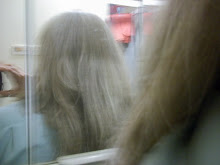Whenever you see a disabled person in a film, you just know two things:
1 – That the disability is going to feature in the story as a plot device, something to move the story along.
Even when a film shows more positive images of disability (for example, Four Weddings and a Funeral) the disability is still used as a plot device; would the wedding scene have been so dramatic if the deaf brother hadn’t had to use sign language?
There might be a token disabled person in a group, just as there are token gays, and as there used to be (?) token women and token blacks: they’re there to show that the film-makers haven’t forgotten the non-white, non-male, non-“normal” members of society.
Disabled people are never shown in films as real people with real feelings, real thoughts, real day-to-day problems, real experiences – who just happen to have a disability.
The disability is always there for a reason – it’s the disability that matters, not the person who has it. You’re not supposed to see the person, just the disability.
2 – That the disabled person will be played by a non-disabled actor.
Disabled people are still not allowed to be real people, as defined by Hollywood.
There’s a John Lennon song: “Women is the nigger of the world” [apologies for the use of that word, but it is the title of the song]. Maybe women have progressed, but the disabled haven’t been allowed to.
In the very early days of theatre, women were not allowed on stage; female parts were played by men because women weren’t real human beings.
In the early days of Hollywood, white men blacked up to play the “comic darkie” because real black people weren’t really human beings, either.
And disabled people are still non-persons. They’re still not allowed in films; they still have to be played by non-disabled actors.
Would a serious film dare to have Joan of Arc or Elizabeth I played by a man in drag?
Would a white man get away with blacking-up to play Desmond Tutu or Nelson Mandela?
Ah, but women and black people are allowed to be real people nowadays – more or less. The disabled aren’t even allowed the “less” – we still have to be portrayed by non-disabled actors.
I would include the link for the Google search page for “Raspberry Ripple Awards” but it's much too long and isn't clickable anyway: try searching for "Raspberry Ripple Awards" yourself if you're interested.

No comments:
Post a Comment